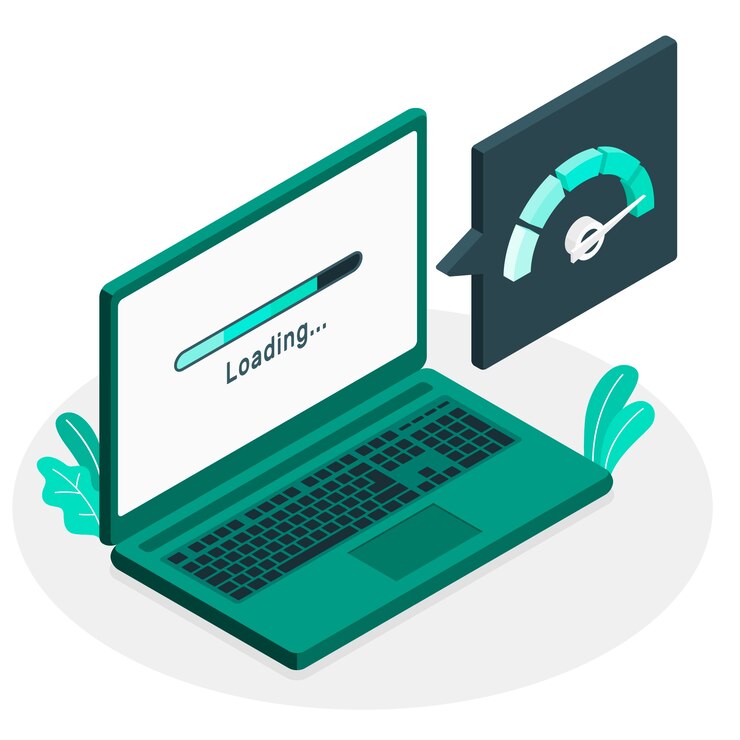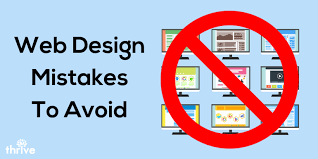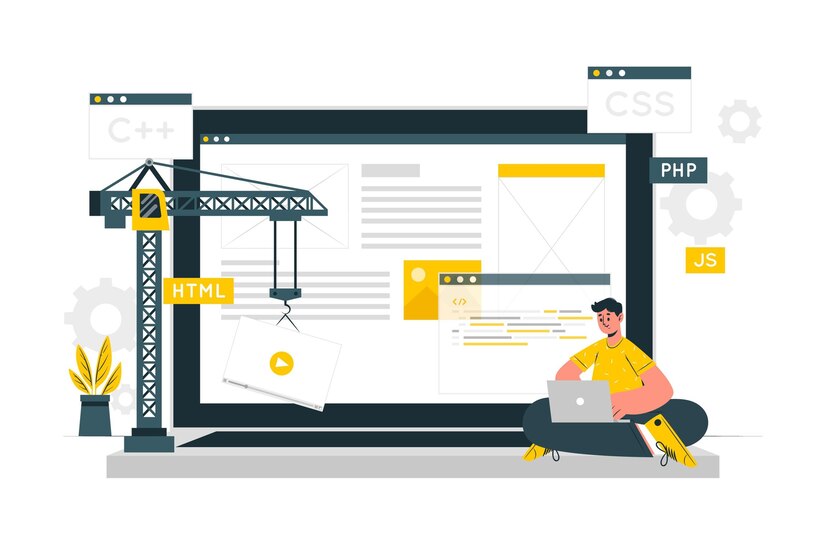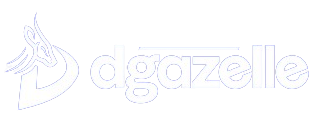Strategic Spending: Capitalizing on Your Website Design for Long-Term Gains

What a company or any brand spends in creating or updating its website is known as website development costs. These costs can vary accordingly. A basic website can be put together for the cost of a small program and of writing the content. One may also spend a great deal of money on a website with custom-designed graphics and interactive features. How much an organization spends on website development costs depends on the total business it can expect from a well-presented website. It will also affect the organization’s reputation and overall profit. It is an adaptable tool that accomplishes a number of tasks, including promoting your business, increasing sales, and encouraging client interaction. Due to the perception of high expenses, investing in website design may appear intimidating for many organizations, particularly small and medium-sized firms (SMEs). Still, a well-thought-out investment in your website can yield significant long-term gains. In this article, we’ll go over how to make the most out of your website by keeping a design that changes with your business, making strategic design decisions, and weighing the costs and benefits of your initial investment. Understanding the Value of Website Design The Role of First Impressions It takes less than a second for users to form an opinion about your website. This split-second judgment is driven largely by visual elements. In the digital age, first impressions have a direct impact on user trust. 94% of users’ first impressions are design-related. If your website looks outdated or difficult to navigate, users may question the credibility of your brand, leading to higher bounce rates. Design also taps into user psychology. The layout, color schemes, typography, and images all influence how visitors feel about your business. 38% of users will stop engaging with a website if the layout is unattractive. In contrast, well-crafted visuals can increase user retention by creating a sense of familiarity and professionalism. Incorporating psychology-driven design elements helps foster trust, resulting in higher engagement and potential conversions. Website Design as a Business Asset Many business owners underestimate the long-term value of quality website design, seeing it merely as an expense rather than an asset. In reality, a well-designed website can directly support business goals. For instance, companies with a user-centric website design can improve customer satisfaction, which in turn boosts revenue. As a business asset, your website contributes to customer acquisition, retention, and overall brand growth. Several case studies highlight the correlation between design improvements and increased return on investment (ROI). Improved navigation and enhanced mobile responsiveness have shown a positive impact on sales metrics. By viewing website design as an ongoing business asset, you position your company to reap long-term rewards. Key Elements of Effective Website Design A well-designed website isn’t just about aesthetics; it’s about creating a user-friendly experience that encourages interaction. Key design principles include simplicity, consistency, and clarity. Users should find it easy to navigate, with intuitive menus and clear calls-to-action guiding their journey. Additionally, loading speed affects both user experience and search engine optimization (SEO). Google’s algorithm factors page speed into rankings, and studies have shown that slow load times can result in a 7% drop in conversions. Tools like Google PageSpeed Insights can help you evaluate your website’s performance and identify areas for improvement. Cost-Benefit Analysis of Website Design Investments Initial Costs vs. Long-Term Savings Upfront website design costs may include hiring professionals, purchasing software, and securing hosting services. However, these costs are offset by long-term savings. For example, investing in a well-optimized design reduces bounce rates, leading to more user engagement and sales. Furthermore, a thoughtfully designed site can lower customer service costs by offering intuitive navigation and self-service options for common queries. When calculating the cost of website design, consider the lifespan of the design. A website that functions well and is easy to update will pay for itself over time through reduced maintenance expenses and increased traffic. Measuring Return on Investment To fully understand the benefits of your website investment, it’s essential to measure ROI. Metrics such as page views, bounce rates, conversion rates, and average session duration can help you assess performance. Tools like Google Analytics offer insights into how users interact with your site, while Hotjar enables heatmaps to visualize user behavior. Calculating ROI from design improvements may also involve tracking revenue changes linked to design updates. For example, if your new design improves the user experience, leading to higher conversions, you can directly attribute that revenue boost to your website design efforts. Budgeting for Future Enhancements Website design is not a one-time investment. As your business grows, so should your website. Allocating a portion of your budget for periodic updates ensures your site remains functional and relevant. Technology upgrades, such as integrating new plugins or enhancing security features, are necessary to keep your site running smoothly. Building flexibility into your design budget allows you to respond quickly to new trends or shifts in user behavior. Regular updates, along with a proactive approach to design improvements, keep your website ahead of the competition. Strategic Design Decisions for Business Growth Aligning Design with Brand Identity Your website is an extension of your brand identity. Consistent branding across your website helps users recognize and trust your business. Elements such as logos, color schemes, and typography should align with your overall brand strategy. Moreover, design choices can communicate company values. For instance, a business that prioritizes sustainability might use earthy tones and eco-friendly imagery to convey its commitment to the environment. Thoughtful design ensures your website acts as an ambassador for your brand. User-Centric Design Approaches A user-centric design approach focuses on meeting the needs and preferences of your target audience. Understanding who your users are and what they expect from your website is key to creating a meaningful experience. Conducting user research, utilizing usability testing, and implementing an iterative design process can help identify areas for improvement and guide design decisions. The process of gathering feedback and refining design elements ensures that your website evolves alongside your users’ expectations.
Design Professional Websites Faster and Easier with Leading No-Code Website Builder

Web development tools such as no-code website builders let users of different experience levels make websites without requiring them to know how to code. The phrase “No code required” is frequently used to emphasize this feature. This doesn’t make things any simple, despite what the public believes. However, the design and development process is accelerated and made more effective. To put it simply, in order to build a strong website, you will still need to be knowledgeable about the fundamentals (and even more advanced) of web design and development. You will achieve much better outcomes faster by using a no-code website builder, but you will still need to put in a lot of late nights to get there. For this reason, there are a plethora of design agencies like Dgazelle digital that specialize in using no-code builders and assist people and companies in building websites. Benefits of using No-Code Website Builder The goal of no-code website builders is to make things easy. Simple drag-and-drop interfaces are just one example of this simplicity. The barriers to entry that frequently discourage people with little knowledge in design from pursuing the building of their own websites are removed by this ease of use. Things to Take Into Account While Selecting a No-Code Website Builder When you decide to design your website without coding, you may want to factor in things like ease of use, the amount of accessible templates (and if they are included or if there are extra premiums on templates) and customization options. In addition to making sure your no-code tools include capabilities that increase the possibility of future growth for the demands of your website, you should search for a no-code development platform that offers simple design tools. Webflow Designers, company owners, entrepreneurs, and other potential users may all construct websites with Webflow without knowing any code. Webflow makes web development easier by enabling people, regardless of skill level, to create and publish professional-looking websites. FeaturesWebflow provides a wide range of functions. If you enjoy tinkering with the front end of websites, Webflow’s “Visual Canvas” lets users alter the HTML, CSS, and JavaScript code that makes up a website. Numerous third-party tools and services, including marketing, analytics, and e-commerce, are integrated. Pros Webflow’s user interface caters to technical users but is passable for novices. Few other platforms can match the design versatility it provides, giving users total control over CSS properties and class systems to create distinctive and eye-catching webpages. ConsWebflow has certain drawbacks for inexperienced users, albeit these are somewhat offset by the fact that it requires no coding. It can take a lot of time to get meaningful results with Webflow because users have to commit to understanding and becoming proficient with its features. CostingA variety of pricing options are offered by Webflow, each designed to satisfy the requirements of a particular user type. One feature that many no-code website builders lack is the ability for prospective customers to choose the plan that best fits their needs in terms of budget and platform scalability. For the majority of consumers, Best For Webflow is unquestionably a fantastic pick, but it’s especially worth considering for individuals with some background in web building and options for diverse user types. WordPress Originally intended for blogging, WordPress is an open-source content management system (CMS) that has expanded to accommodate a wide range of web content formats. With plugins like WPBakery and Elementor, WordPress grows from a decent content management system to one of the best no-code website builders. Features WordPress allows you to edit your content in real time with block-based editing. Additionally, WordPress has a wealth of customization choices. Users can choose from pre-selected themes or create a new one from scratch, customizing colors, fonts, layouts, and other features to fit their own tastes. Advantages WordPress provides all the tools and functionality you need to start an e-commerce store, showcase professional portfolios, or start a personal blog. Many people profit from its free and open-source nature, but there may be additional costs like hosting and plugins to get the same functionality as other no-code website builders. Cons WordPress is quite user-friendly, but there is a learning curve for those who want to learn how to use its more sophisticated capabilities. Although it may require some time to learn, WordPress is a great resource for anyone interested in learning about website creation. Because WordPress customisation requires a certain amount of technical skill, it could potentially be a drawback for some users. Costing Although WordPress is free to use, there may be additional fees for hosting, themes, plugins, and other services, such as payment processing if you operate an online store. The cost varies according to the service you select and your unique requirements. Squarespace Squarespace distinguishes itself by serving a diverse clientele, including creatives and companies. This place genuinely has something to offer everyone. You may easily establish a web presence with Squarespace! Features Squarespace offers several tools, such as drag-and-drop capability and configurable templates, that simplify the online development process. If you’re interested in e-commerce, Squarespace makes it simpler than most other no-code website builders to set up online businesses and manage inventory. Advantages Squarespace’s visually stunning templates are one of its primary selling points for design-focused web projects. One of Squarespace’s bundle options is hosting. Hosting is a huge plus if the goal is not technical in the slightest. Cons Even with all of Squarespace’s advantages, some may feel that, in comparison to other platforms, its personalization choices are a little limited. Compared to other no-code website builders, you might find their customer assistance to be less responsive. Costing Squarespace provides pricing options to accommodate various user needs and budgets. Options on the show vary from sophisticated commercial plans to simple personal plans. Wix One major participant in the ecosystem is Wix. Wix tends to draw in people who are just beginning the process of creating websites, but it also offers capabilities that let users do more than simply create
7 Little-Known Tricks to Boost Your Website Speed Today!

Increasing the website speed makes sense and is way important than you think, think about these user anticipations: When a website takes longer than three seconds to load, 40% of users leave. and 47% of users anticipate a website to load in under two seconds. But in reality, the average web page load time is 2.5 seconds on desktop and 8.6 seconds on mobile, Numbers obviously don’t lie, website visitors may not be experiencing a good user experience if they expect your page to load in two seconds or less but it is not. It is certainly time to review your website’s overall speed and user experience. Possibly with the use of a Real User Monitoring tool. Why website speed matters People anticipate a quick website, because It all boils down to control, a core factor in user experience. Humans dislike having no control over their surroundings. We are easily distracted and prone to impatience. And this shows itself in website too, users who experience a faster page load speed feel as though they have more influence over the website—rather than it controlling them. And this also help your SEO ranking (In addition, maintain the health of your organic search rankings; since 2010, Google has included page load speed as a key component in their algorithm). So when building websites, you should not just focus on the assets and style of the website but most importantly be focusing on improving overall website speed, it’s the entire design process. Here are my tips on how to speed up your website easily: 1: Begin by thinking about the webpage’s objective. What is your page’s objective? Do you want users to enter their email address or sign up for a free trial on your website? You’ll be in the best position to make adjustments if you start with the goal you have in mind for that page. Prior to even starting to write scripts, chop HTML, compress photos, or build up visuals, it’s critical to take the time to thoroughly understand the objectives of all parties involved 2. While content is important, don’t forget about the layout! The goal of information architecture (IA) is to efficiently and sustainably organize, structure, and classify content. Text loads far more quickly than images and other types of media. Reducing the amount of media on your website may sometimes be the solution to speeding up page loads. First, ask yourself if you really need this picture instead of text. What good does the media offer? I won’t go into the benefits and drawbacks of removing or leaving media on your website. But think about “What’s the goal of the page,” and make sure the media you choose takes this into account. Front-end development, interaction design, user interface design, and content strategy are all influenced by good IA. Investing time on your information architecture will eventually result in better-structured content, design, and code, which will help your website load faster and function more efficiently. It will also boost your SEO efforts, as Google will regard your excellent IA as extremely valuable and award you with a higher SERP ranking. 3. Instead of using images, use CSS. With CSS (Cascading Style Sheets), it is possible to distinguish between meaning and appearance. Excellent use in cases where a page’s loading time is sacrificed for large, high-quality images. Two prominent examples are websites for eCommerce and photography. Large, gorgeous photos and a quick-loading website are what most clients seek. If you work with clients in these areas, it’s worthwhile to learn CSS so that you may generate visually stunning content without requiring photos. Your page will load faster and perform better! Note: It’s important to keep the size of your style sheets to a minimum; there’ll be less to load. However, if you do use images, make sure to choose the right format for the job 4. Optimize your photos to increase website speed When optimizing photos, there are a few things to take into account: Which image format is better will depend on the type of image and how it will be utilized. Select the appropriate one from the list below to expedite your website: Try adjusting the quality, palette size, and other options to see which works best for each format. Eventually, you’ll discover which picture format minimizes page load time and speeds up your website. 5. Make your design mobile-friendly. Compared to desktop users, mobile users often have distinct goals and prefer information in short, easily absorbed bursts. Since so many mobile users are having trouble loading webpages, it’s a really simple technique to obtain an advantage over competitors. This is a short list of easy improvements to improve the usability of your mobile website. 6. Minimize the use of plug-ins! Have you ever worked on a website that had so many plugins installed that you were unsure of what each one did? While plugins offer fantastic additional functionality, an overabundance of them may be the main source of a slow website. When it makes sense, once again take into account using CSS instead of plugins. This will provide you the same functionality or effect without the hassle of possible crashes and security issues. By removing any plugins that are unnecessary, you can drastically lower your running expenses in addition to boosting your website speed. 7. Test your website’s performance before releasing it into the public. It’s not necessary to always fly by blind. Before deploying, you can test your site with these fantastic free tools: Evaluating the overall speed of your website won’t take long at all. Evaluate each page separately and concentrate on the minor adjustments to make your website load faster. Conclusion It’s easy to overlook the user experience aspect of website design and development in favor of flashy graphics and intricate layouts. Control is key, and users who feel in control are happier. Use these suggested tips to impress even the pickiest customers when you need a website that loads quickly, looks good, and
5 Strategic ways to Boost Your Website Traffic by 50%

Boost Your Website Traffic
8 Website Design Mistakes to Avoid When Building or Revamping

Introduction Did you know that 75% of your website’s reputation is due to its design? Visitors may consider your firm as less reliable if there are numerous website design flaws. Whether you’re creating a new website or refreshing an existing one, preventing these mistakes will help your company stand out online for the correct reasons. So in this post we are going take a dive into these mistake and also learn practical techniques to correct or avoid these mistakes completely. 1. Not prioritizing accessibility. The most common mistake in website design is to treat accessibility as an afterthought. According to Maria Kelly, below are the four most common accessibility errors: 2. Neglecting the value of responsive design. In the second quarter of 2022, mobile devices accounted for more than 58% of global website traffic, which excludes tablets. If your website isn’t as user-friendly on mobile as it is on desktop, you risk annoying users and boosting your bounce rate. “Users are browsing websites on more devices than ever before, including phones, tablets, computers, and even televisions. “If our content looks bad on any of them, visitors will lose trust and leave from the site,” says Juan Manuel Devia Pinzon. “The age of breakpoints is now!” According to Sean Landry, there is a reason why this happens. “Websites are frequently created with tools from a desktop web browser. One common mistake is assuming that your clients will browse your site on a desktop computer and failing to address mobile users.” 3. Sacrifice user experience for aesthetics. One of the most common website design blunders in recent years has been prioritizing appearances over function. As the internet has been flooded “With a great proliferation of new media and design in recent years, excelling has become nearly necessary for success. Unfortunately, this has resulted in an overuse of design and graphic elements that appeal to users’ senses but are distant from the core goal of a website,” says Sergio Martinez. According to Martinez, this manifests itself in numerous ways. “…from design trends that dilute a brand’s value proposition to the overuse of motion, content, and heavy visuals that increase aesthetics but are ineffective. This does not imply that a minimalist or neubrutalism style should be used; it is about balance and how the form complements the purpose.” 4. Not investing in personalization. Consider your website to be your business’s online shop. It should be consistent with your branding and feel unique to your firm. One of the most common website design blunders is using a cookie-cutter template without personalizing it. For example, defaulting to the normal hero banner can be counterproductive. “We’ve all seen them – the full-width image right under the navigation, usually with white or black text and a button sitting on top,” explains Lindsay Derby “The image is either very light, very dark, or cleverly cropped such that the writing is legible. There are several reasons why I believe this is a mistake. The first is that it is so common that it has become formulaic and monotonous. What was once a visually appealing design decision has become mundane.” 5. Implementing features that do not convert. Another common mistake is utilizing inefficient features. Remember that the effectiveness of your website comes first, no matter how visually stunning a feature is. “Another common mistake is relying on rotating carousels to feature multiple pieces of content at the same level,” Derby points out. “There has been countless research done to indicate that users do not often interact with carousels, particularly on mobile where the interaction cost is high.” 6. Lack of hierarchy. Have you ever visited a website and been unclear where to focus your attention? If this is the case, you have most likely landed on a site with no hierarchy. Just like how a newspaper uses headlines and subheads to denote significance, so should your website’s typography. Ordering on your website not only looks good, but it also has a purpose. “Organization of website elements… give your site a cohesive structure that drives users to complete clear actions, achieves the primary goal, and, subsequently, creates a seamless experience,” Martinez advises. 7. There is unclear navigation. Clear navigation may lessen the friction visitors encounter when they arrive on your site, which is why poor navigation is such a problem. “As more and more businesses branch into the digital world, content on the website becomes more crowded and complex, having a clear navigation and consistency across your multiple touchpoints and user journeys will ensure a smooth transition from first visitor to advocate,” Devia Pinzon, a consultant, says. 8. You’re not successfully communicating your company’s objective. When visitors arrive on your website, they should have a clear picture of what your firm does. What if the picture is even slightly blurry? You guessed it: visitors may abandon your website. “The first thing a website visitor does when they load your site is to determine if they reached the right destination,” Landry adds. “Does your site clearly state above the fold what product or service it offers?” Your website should help to build your company’s credibility. If it isn’t explaining your company’s goal and reassuring visitors that they’re in the proper place, a website redesign is probably in order. Conclusion Now you know what these common mistakes are, in the next post we will be exploring how to better them to increase your site’s trustworthiness and provide visitors with an experience they will want to return to. “Web design is a team sport and requires a circular approach that ensures a good alignment between teams, stakeholders, and user knowledge,” Martinez points out. “There’s no better way than testing and iterating, including user research and usability testing, to ensure your website is moving in the right direction.” GET IN TOUCH Let our experts design the perfect error free website for your business
5 Best Website Builders for Small Businesses

Introduction As a small business owner, a website is your most effective marketing tool. It informs potential consumers, suppliers, investors, and partners about your products. Using my experience, I’ve identified the five best website builders for small businesses, that you can easily use without need to have a dedicated website builder. What Qualifies a Good Website Builder for Small Businesses? To help you choose the best solution for your small business, look for the following essential components and characteristics (which are also the areas I concentrated on while creating this list). Now, let’s take a closer look at my top five recommendations for the best website builders for small businesses. WordPress According to statistics, open-source WordPress software is by far the most popular way to create a website, accounting for over 43% of all websites on the internet, including several small business websites. It’s also what I use for all of my own websites, thus I believe it deserves the top rank on this list. Overall, WordPress.com provides a tremendous amount of freedom for creating any type of small company website and adding virtually any feature imaginable, which is why I believe it is an excellent starting place for many small businesses. Key Features: Tons of SEO features. WordPress.com includes built-in SEO tools and you can also install SEO plugins to access more features. Code-free editor. The drag-and-drop WordPress Block Editor allows you to control all of your content (including site design). E-commerce functionality. If you wish to sell products or services, the WooCommerce plugin provides full ecommerce capability. WordPress.com also includes built-in options for receiving one-time or recurring payments, which can be useful if you don’t want complete ecommerce functionality. Pricing While WordPress.com offers a free plan and some paid options under $10, I recommend that small businesses choose for at least the $25 per month Creator plan, which allows you to fully customize WordPress, including installing your own custom WordPress plugins and themes. Wix Wix is one of the most well-known website builders and unquestionably one of the best solutions for small enterprises. According to W3Techs, it is the most popular standalone website builder, accounting for more than 2.7% of all websites on the internet. In addition to its extensive template collection and visual, drag-and-drop builder, I believe one of the most appealing aspects of Wix for small businesses are the additional tools it provides to help you operate your firm. Key Features SEO tools. Wix’s subscription plans contain SEO capabilities and tools to help you rank on search engines such as Google. Visual drag-and-drop design. You can completely alter your site’s design without knowing any coding. E-commerce functionality. If you wish to sell products or services, Wix provides full-service ecommerce capabilities that is suitable for selling a few items or creating a whole online store. Blog functionality. Wix allows you to create your own blog, which I believe is an excellent method to promote your small business. Pricing Wix offers a free plan for creating a website on a subdomain (e.g. yoursite.wix.com), as well as affordable plans. However, for small businesses, the Core plan ($11 per month) and Business plan ($22 per month) are recommended as they provide additional tools and marketing features. HubSpot’s Content Hub HubSpot’s Content Hub provides a free Drag-and-Drop Website Builder that helps you easily build a website and connect it to HubSpot’s CRM. You can set up your website utilizing AI tools or readymade themes. Regardless, you’ll be able to personalize everything with a visual drag-and-drop editor. I believe that HubSpot Content Hub stands out in terms of the marketing tools available to you. You can easily create a blog for content marketing, set up marketing automations, and run A/B tests to optimize everything without ever having to install any third-party plugins or apps. Key features Powerful blogging tools. You may quickly create blog entries to help your small business expand through content marketing. AI writing tools. You can utilize these to improve the effectiveness of your content marketing plans. Built-in analytics. While you are always welcome to add third-party analytics solutions, you may already use built-in analytics to monitor everything that happens on your website. Pricing The free plan allows you to create up to 30 website pages and publish up to 100 blog articles. Then there are several subscription options that increase/remove those restrictions and offer you access to more advanced features. These priced options start at only $15 per month. Squarespace I like Squarespace because it contrasts nicely with a small company website builder like Wix. While both essentially do the same thing, they approach it in different ways. Wix aims to provide you everything and as a result their interface is clustered. In contrast, I believe Squarespace’s interfaces are a breath of fresh air. If you felt overwhelmed while looking at Wix’s interface, I believe you may feel the same way. Key Features Blueprint, an AI website builder. While you can manually create your website using one of Squarespace’s designs, the company also released an AI website builder tool in 2023 that allows you to design your site with AI and a guided wizard. Appointment scheduling. If your small business relies on appointments, Squarespace’s booking feature can help you automate the entire process, including collecting online payments. Important SEO tools. Squarespace provides all of the SEO fundamentals that small business websites require to rank in Google. Full analytics support. Squarespace includes its own analytics tool, as well as the ability to integrate Google Analytics and other third-party trackers. Pricing Squarespace does not have a free plan, however it does offer a 14-day free trial. The paid plans begin at $16 per month for the Personal plan, but I recommend upgrading to the $23 per month Business plan because it includes some excellent marketing tools as well as the option to sell things and services on your site. SpreadSimple SpreadSimple is a little unusual and unlikely to appear on other suggestion lists. However, I believe it is worth
Essential Sales Funnel Tips for Web Designers

Introduction The concept of sales funnels has emerged as a critical component in driving conversions and maximizing ROI for clients. In this introductory section, we’ll provide an overview of sales funnels in web design and highlight their importance for web designers while leaving you with sales funnel tips to help you as you design your next website. Sales funnels in web design represent the strategic process of guiding website visitors through a series of steps towards a specific goal, typically a conversion, such as making a purchase, signing up for a newsletter, or filling out a contact form. Unlike traditional websites that aim to provide information or showcase products and services, sales funnels are designed with a clear focus on driving action and facilitating user engagement at each stage of the buyer’s journey. Importance of Sales Funnels for Web Designers Sales funnels play a crucial role in the success of websites by optimizing user experiences, maximizing conversions, and ultimately driving business growth. For web designers, understanding and implementing effective sales funnels are essential skills that can differentiate their work and provide added value to clients. By leveraging sales funnel principles in web design, designers can create websites that not only look aesthetically pleasing but also perform effectively in achieving business objectives and delivering measurable results. Understanding Sales Funnels Sales funnels are the backbone of effective online marketing strategies, guiding website visitors through a structured journey towards a specific goal. Let’s delve into the definition, components, and the role of web design in sales funnels. At its core, a sales funnel represents the path that a user takes from the initial interaction with a website to completing a desired action, such as making a purchase or submitting a form. The funnel concept acknowledges that not all visitors are ready to convert immediately and aims to nurture them through sequential steps to increase the likelihood of conversion over time. Components of a Sales Funnel A typical sales funnel consists of several key components: 1. Awareness: This stage involves attracting visitors to the website through various channels such as organic search, social media, or advertising. 2. Interest: Once visitors land on the website, they move to the interest stage, where they explore the content, products, or services offered. 3. Desire: In this stage, visitors develop a desire or need for the product or service, often through persuasive messaging, testimonials, or demonstrations. 4. Action: The final stage is where visitors take the desired action, such as making a purchase, signing up for a newsletter, or requesting more information. Role of Web Design in Sales Funnels Web design plays a crucial role in optimizing sales funnels for maximum effectiveness. Design elements such as layout, navigation, visuals, and messaging contribute to shaping the user experience and influencing visitor behavior at each stage of the funnel. By designing intuitive user interfaces, persuasive call-to-actions, and visually appealing landing pages, web designers can enhance the overall effectiveness of sales funnels and increase conversion rates. Importance of Sales Funnel Optimization Optimizing sales funnels is essential for driving conversions, enhancing user experiences, and maximizing ROI for clients. Let’s explore the significance of sales funnel optimization in more detail. Maximizing Conversions Sales funnel optimization focuses on identifying and addressing potential barriers or friction points that may hinder visitors from completing the desired action. By optimizing elements such as page load speed, form usability, and checkout process, web designers can streamline the conversion process and increase the likelihood of visitors taking action. Enhancing User Experience A seamless and intuitive user experience is crucial for keeping visitors engaged and guiding them through the sales funnel effectively. Web designers can improve user experience by designing clear navigation, intuitive layouts, and mobile-responsive interfaces that adapt to various devices and screen sizes. Increasing ROI for Clients Ultimately, sales funnel optimization aims to deliver tangible results for clients by increasing conversion rates and generating a positive return on investment (ROI). By optimizing sales funnels to deliver relevant, targeted experiences to users, web designers can help clients achieve their business objectives and drive sustainable growth. Essential Sales Funnel Tips for Web Designers Creating an effective sales funnel requires careful attention to detail and strategic design decisions. In this section, we’ll explore essential tips for web designers to optimize sales funnels and drive conversions. Creating Engaging Landing Pages Landing pages are the entry point into your sales funnel and often the first impression visitors have of your brand. To create engaging landing pages: – Clear Value Proposition: Clearly communicate the benefits of your product or service and why visitors should take action. – Compelling Visuals: Use high-quality images, videos, and graphics to capture attention and reinforce your message. – Strong Call-to-Action (CTA): Include a clear and persuasive CTA that prompts visitors to take the next step in the funnel. Optimizing Forms and CTAs Forms and CTAs play a crucial role in capturing visitor information and guiding them through the conversion process. To optimize forms and CTAs: – Minimize Friction: Keep forms short and simple, asking for only essential information to reduce abandonment rates. – Visible and Accessible: Place CTAs prominently on the page and ensure they stand out visually to encourage clicks. – Provide Clear Instructions: Clearly communicate what action visitors should take and what they can expect after submitting the form. Improving Page Load Speed Page load speed directly impacts user experience and can significantly affect bounce rates and conversion rates. To improve page load speed: – Optimize Images: Compress images and use the appropriate file formats to reduce file sizes without compromising quality. – Minimize HTTP Requests: Reduce the number of server requests by combining CSS and JavaScript files and minimizing redirects. – Utilize Browser Caching: Leverage browser caching to store frequently accessed resources locally and reduce load times for returning visitors. Implementing Responsive Design With the increasing use of mobile devices, responsive design is essential for ensuring a seamless user experience across all devices. To implement responsive design: – Use Fluid Grids: Design layouts using percentages instead of fixed pixels to allow content to adapt
Enhancing User Engagement: 5 Key Site Features Users Crave

Introduction The success of a website depends on its ability to cater to user preferences and meet the expectations of modern website users. By prioritizing certain key features, websites can significantly enhance the user experience. This article will explore the five essential features that every website must prioritize to create a user-centric experience. Importance of catering to user preferences Understanding and catering to user preferences is crucial for any website aiming to succeed in today’s competitive digital landscape. By prioritizing user experience, websites can increase user satisfaction, engagement, and loyalty. Understanding the expectations of modern website users Modern website users have high expectations when it comes to usability, accessibility, and interactivity. They expect websites to be intuitive, responsive, personalized, simple, and engaging. By meeting these expectations, websites can stand out and make a lasting impact on their users. Image by Freepik Overview of the five key features The five key features we will explore in detail are: 1. Intuitive Navigation 2. Responsive Design 3. Personalization and Customization 4. Simplicity and Minimalism 5. Interactive and Engaging Elements Intuitive Navigation Intuitive navigation is essential for guiding users through a website seamlessly. By implementing the following strategies, websites can enhance user experience and make navigation effortless. Clear and user-friendly menu design A clear and user-friendly menu design is crucial for helping users find what they’re looking for quickly. Websites should organize their menu items logically, using intuitive labels that clearly represent the content or functionality they lead to. Additionally, employing dropdown menus or flyout menus can further simplify navigation. Implementing search functionality effectively Search functionality allows users to find specific information or products on a website. It is important to implement an effective search feature that provides accurate and relevant results. Autocomplete suggestions and filters can assist users in refining their search queries, leading to a more positive user experience. Utilizing breadcrumbs for seamless navigation Breadcrumbs are visual cues that show users their current location within a website’s hierarchy. They provide users with a clear understanding of where they are and how they navigate back to previous pages. Breadcrumbs enhance user experience by reducing confusion and saving time. Enhancing user experience with quick links and related content suggestions Quick links and related content suggestions offer users easy access to additional relevant information. By displaying quick links to popular pages or related articles, websites can help users discover more valuable content and improve their overall experience. Mobile-responsive navigation for improved accessibility With the growing number of mobile users, it is crucial for websites to prioritize mobile-responsive navigation. Mobile-friendly menus and navigation elements ensure a seamless experience across all devices, improving accessibility and user satisfaction. Responsive Design Responsive design allows websites to adapt and provide an optimal viewing experience on a variety of devices. By prioritizing responsive design, websites can enhance the user experience across multiple platforms. Importance of responsive web design Responsive web design allows websites to adjust their layout and content dynamically based on the user’s device screen size. This ensures that the website appears properly and is easy to navigate, regardless of whether it is accessed on a desktop, tablet, or mobile device. Prioritizing mobile-responsive layout and functionality Given the significant increase in mobile internet usage, it is crucial for websites to prioritize mobile-responsive layout and functionality. This includes optimizing font sizes, button sizes, and touch targets to ensure easy interaction on smaller screens. Utilizing flexible grids and scalable images Flexible grids and scalable images allow websites to adapt their layout smoothly to different screen sizes. By using fluid grid systems and CSS media queries, websites can ensure that their content is presented attractively and legibly on all devices. Enhancing user experiences across multiple devices Consistency across multiple devices is essential for providing a seamless user experience. Websites should maintain consistent branding, design, and functionality across desktop, mobile, and tablet devices to ensure user familiarity and ease of use. Optimizing loading speed for various internet connections Loading speed is crucial for user experience, particularly on mobile devices with varying internet connections. Websites should optimize their resources, compress images, and minimize unnecessary scripts to ensure fast loading times and prevent user frustration. Personalization and Customization Personalization and customization allow websites to deliver tailored experiences that meet the unique preferences of individual users. By implementing these features, websites can significantly enhance user engagement and satisfaction. Utilizing user data to deliver personalized experiences Websites can gather user data through cookies, account preferences, or user profiles to deliver personalized experiences. By analyzing user behavior, websites can recommend relevant content, products, or services, creating a more engaging experience. Implementing user preferences and settings Providing users with the ability to customize their preferences and settings empowers them to tailor their experiences. This could include options to adjust language preferences, notification settings, or content filtering, allowing users to control their interactions with the website. image from pinterest Allowing users to customize layout and themes Enabling users to customize the layout and themes of a website gives them a sense of ownership and personalization. By offering various color schemes, font options, or layout configurations, websites can create a unique experience for each user. Offering personalized recommendations based on user behavior Websites can leverage user behavior data to offer personalized recommendations. By suggesting similar products, relevant content, or relevant resources, websites can increase user engagement and drive conversions. Enabling personalized communication options Allowing users to choose their preferred communication options, such as email newsletters or push notifications, ensures a more personalized experience. Websites should respect user privacy and preferences while delivering relevant updates and offers. Simplicity and Minimalism Simplicity and minimalism in design and content can significantly enhance user experience by reducing clutter and improving usability. Streamlining website content and design Websites should prioritize quality over quantity when it comes to content and design. Streamlining content by eliminating unnecessary text or visuals can make information more digestible and enhance the overall user experience. Prioritizing clarity and readability Clear and concise content ensures that users can quickly grasp the message or
4 reasons why your SME needs a website

Introduction In today’s digital age, having a strong online is no longer just an option for small and medium-sized enterprises – it is a necessity. A website serves as the virtual storefront for your business, enabling to reach a wider, establish credibility, expand customer base, and boost sales and revenue In this blog post, will explore the various why having a website is for your small business how it can drive and success. Online Presence Reaching a wide audience through digital footprint A provides SMEs with opportunity to extend their reach the limitations of a location. With a website you can tap into global market, reaching customers who may have never heard of your business otherwise. By optimizing your website for search engines and using digital marketing tactics, you can drive organic traffic and increase your online visibility, ensuring that your business is discoverable by a wider audience. Displaying professionalism with a dedicated online space Having a website showcases your professionalism and commitment to your business. It demonstrates that you take your business seriously and have invested time and effort into creating a dedicated online space for your customers. A well-designed website that reflects your brand identity and values not only impresses visitors but also builds trust and credibility, making it more likely for them to engage with your products or services. Image by our-team on Freepik Facilitating customer engagement and feedback A website acts as a bridge between your business and your customers, providing them with a platform to easily engage and interact with you. Through features like contact forms, live chat support, and social media integration, you can address customer queries and concerns promptly. Additionally, a website allows customers to leave reviews and testimonials, which not only serve as social proof but also provide valuable feedback that can help you improve your offerings. Establishing Credibility and Trust Establishing a strong brand identity and reputation Your website serves as a digital representation of your brand and plays a crucial role in shaping how your business is perceived by potential customers. A well-designed website with consistent branding elements, such as logo, color scheme, and messaging, helps create a memorable and recognizable identity for your business. By maintaining a professional and cohesive online presence, you establish a strong brand reputation that instills trust and confidence in your target audience. Showcasing expertise and credentials A website offers a platform to showcase your expertise and credentials in your respective industry. Through informative blog posts, case studies, whitepapers, or downloadable resources, you can position yourself as an authority and thought leader. This not only helps build trust with your audience but also attracts potential customers who are seeking reliable and knowledgeable businesses to work with. Building customer trust with testimonials and reviews Customer testimonials and reviews are powerful tools for building trust and credibility. By featuring positive testimonials, reviews, and ratings on your website, you provide social proof of your business’s value and customer satisfaction. Prospective customers are more likely to trust the opinions and experiences of others, making them more inclined to choose your business over your competitors. Expanding Customer Base Reaching potential customers beyond geographical boundaries A physical store restricts your business to a specific location. With a website, you can break free from geographical boundaries and reach customers from all around the world. This expands your customer base exponentially and opens up new opportunities for growth and revenue generation. Generating leads through effective search engine optimization (SEO) A well-optimized website that ranks higher in search engine results increases your chances of attracting potential customers. By incorporating relevant keywords, creating high-quality content, and optimizing your website’s structure, you can improve your organic search visibility. This, in turn, drives targeted traffic to your website and increases the likelihood of generating leads and conversions. Increasing visibility and attracting new visitors In addition to search engine optimization, a website allows you to leverage other digital marketing channels to increase your visibility. Through social media integration, email marketing campaigns, and paid advertising, you can reach a broader audience and attract new visitors to your website, ultimately expanding your customer base. Boosting Sales and Revenue Creating a seamless online shopping experience An e-commerce-enabled website enables you to sell your products or services online, providing a convenient and seamless shopping experience for your customers. By incorporating user-friendly navigation, intuitive product categories, and secure payment gateways, you can encourage visitors to make purchases directly from your website, boosting sales and revenue. Utilizing effective call-to-actions and conversion strategies Strategically placed call-to-action (CTA) buttons and conversion-focused design elements can significantly impact your website’s conversion rate. By guiding visitors towards desired actions, such as signing up for a newsletter, requesting a quote, or making a purchase, you can turn website visitors into paying customers. Enhancing customer loyalty and retention through personalized offers A website offers the opportunity to create personalized experiences for your customers, increasing their loyalty and encouraging repeat purchases. By implementing features like customer accounts, personalized recommendations, and targeted email marketing campaigns, you can nurture relationships with existing customers and enhance their long-term value to your business. Image by krakenimages.com on Freepik Summary In summary, a website is an indispensable tool for SMEs, offering a myriad of benefits. It enhances your online presence, establishes credibility and trust, expands your customer base, and ultimately boosts your sales and revenue. By investing in a well-designed and optimized website, SMEs can effectively grow their businesses and thrive in the digital landscape. In conclusion, a website plays an integral role in the success of SMEs. It enhances online presence, establishes credibility, expands the customer base, and boosts sales and revenue. By leveraging the power of a website, SMEs can effectively grow their businesses and thrive in the digital landscape. Don’t underestimate the impact of a well-designed and optimized website – it can be the key to unlocking your business’s full potential.
10 Website Design Trend that will make your site stand out

Introduction In today’s digital landscape, the importance of website design cannot be overstated. A visually appealing and user-friendly website has the power to captivate your audience and leave a lasting impression. To help you make your website stand out from the competition, we have compiled a list of 10 standout website design hack that will elevate your online presence and deliver an exceptional user experience. I. Minimalistic and Clean Design A. Simplified layouts for enhanced usability Creating a clutter-free website with simplified layouts not only enhances usability but also allows your content to take center stage. By removing unnecessary elements and focusing on what truly matters, you can guide your visitors effortlessly through your website. B. Effective utilization of white space White space, also known as negative space, plays a crucial role in design. By strategically incorporating white space, you can provide visual breathing room, improve readability, and create a sense of elegance and sophistication. C. Streamlined navigation menus Streamlining your navigation menus is key to ensuring a seamless user experience. By simplifying and organizing your menu options, you can help visitors find what they need quickly and easily, reducing frustration and increasing engagement. II. Bold and Vibrant Colors A. Break away from traditional color schemes Don’t be afraid to break away from traditional color schemes and experiment with bold and vibrant colors. Vibrant hues can evoke emotions, grab attention, and create a memorable visual experience for your visitors. B. Utilize contrasting colors for visual impact Contrasting colors add visual interest and help certain elements stand out. By carefully selecting complementary colors and using them strategically, you can create a visually stunning website that instantly captures attention and enhances the overall design. C. Incorporate gradients for depth and interest Gradients have made a comeback in web design and offer a modern and dynamic look. By subtly incorporating gradients into your design, you can add depth and visual interest, elevating the overall aesthetics of your website. Bold and vibrant colour | Image by abdularis on Freepik III. Micro-interactions and Animations A. Enhance user experience with subtle animations Subtle animations, such as hover effects or loading animations, can greatly enhance the user experience by providing visual feedback and guiding visitors through your website. These microinteractions create a sense of interactivity and captivate your audience. B. Use microinteractions to engage and guide visitors Microinteractions, like interactive buttons or progress indicators, can engage visitors and guide them through complex processes. By incorporating these small yet impactful interactions, you can make your website more intuitive and enjoyable to navigate. C. Optimize loading animations for a smoother experience Loading animations are notorious for frustrating users. Optimizing your loading animations to be seamless and quick can significantly improve the user experience. Nobody likes to wait, so make sure your loading animations are snappy and enhance rather than hinder the overall experience. IV. Mobile-First Approach A. Importance of responsive design for mobile devices In today’s mobile-centric world, a mobile-first approach is essential. Responsive design ensures your website adapts to different screen sizes and delivers a seamless experience across devices. By prioritizing mobile usability, you can reach a wider audience and provide a positive user experience for all. B. Design strategies specifically for mobile interfaces Designing specifically for mobile interfaces requires careful attention to detail. Simplifying layouts, optimizing touch targets, and prioritizing key content are just some of the strategies that can enhance mobile usability and ensure your website looks and functions seamlessly on smaller screens. C. Prioritize mobile usability and functionality Keeping mobile usability and functionality at the forefront of your design decisions will help you deliver a stellar mobile experience. Consider the limitations of mobile devices and ensure your website is optimized for speed and performance on smartphones and tablets. V. Interactive User Interfaces A. Integration of interactive elements for engagement Interactive elements, such as sliders, quizzes, or interactive infographics, can greatly enhance user engagement and make your website more memorable. By allowing users to actively interact with your content, you create a personalized and immersive experience. B. Employ chatbots and conversational interfaces Chatbots and conversational interfaces have become increasingly popular in web design. These intelligent systems not only provide instant support and assistance but also create a human-like conversational experience. Incorporating chatbots can improve user satisfaction and streamline communication. C. Gamify user experiences for increased interactivity Gamification elements, such as progress bars, badges, or rewards, can transform the user experience into an interactive and addictive journey. By incorporating gamification principles into your website design, you can increase engagement and keep visitors coming back for more. Interactive User interface | Image by Freepik VI. Typography as a Statement A. Choose unique fonts for brand identity Typography goes beyond just choosing a font. By carefully selecting unique fonts that align with your brand identity, you can create a strong visual representation of your brand and leave a lasting impression on your visitors. B. Experiment with font sizes and spacing Playing with font sizes and spacing can add visual interest and hierarchy to your content. Experimenting with different font sizes and line spacing enables you to emphasize key messages, guide readers through your content, and enhance overall readability. C. Typography hierarchy for emphasis and readability Establishing a clear typography hierarchy is crucial for guiding users’ attention and ensuring readability. By assigning different font weights, styles, and sizes to different content elements, you can create a hierarchy that enhances the overall user experience and makes your content easily scannable. VII. Parallax Scrolling A. Create depth and dimension with parallax effects Parallax scrolling adds depth and dimension to your website by providing a layered effect. This visually stunning technique creates a sense of immersion and captivates visitors, making them more likely to explore your website further. B. Utilize scrolling to tell a visual story Scrolling can be used as a narrative tool to tell a visual story. By carefully choreographing the scroll experience and presenting content in a sequential manner, you can guide users through your website and create a

